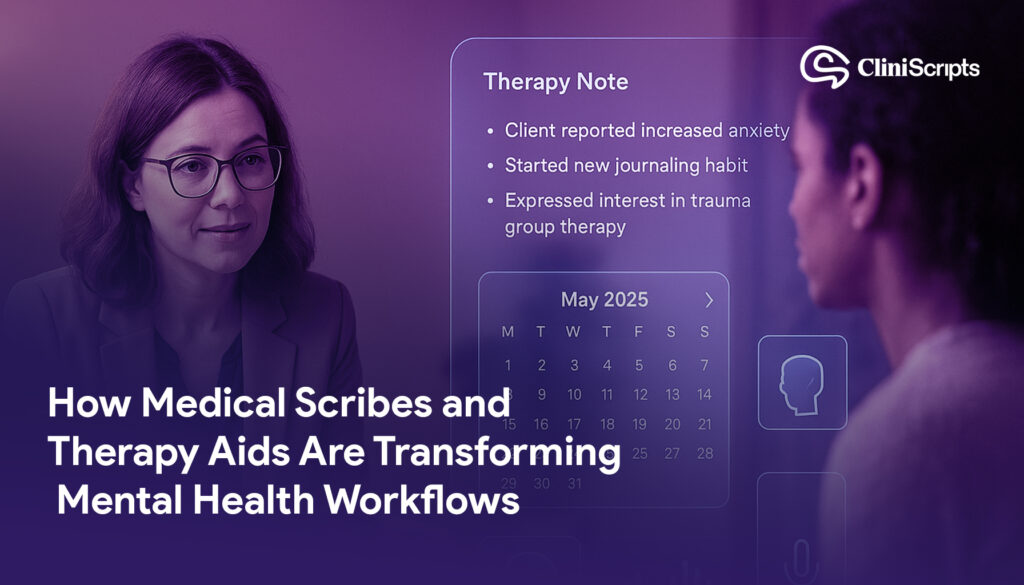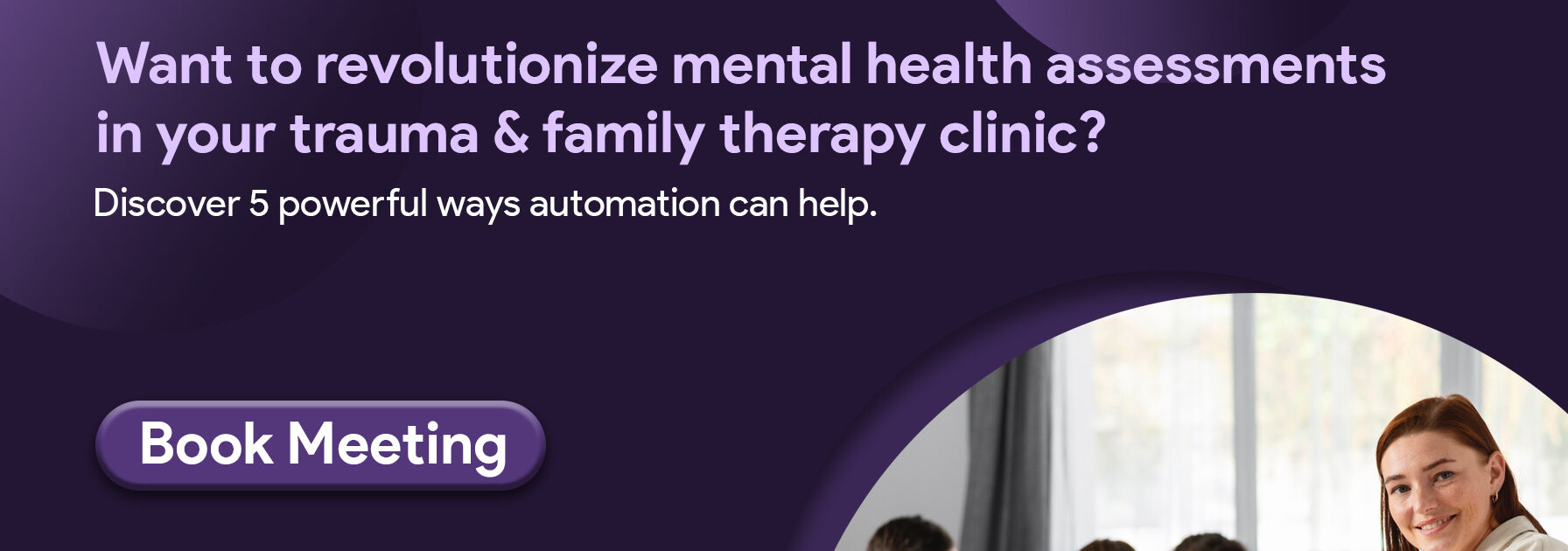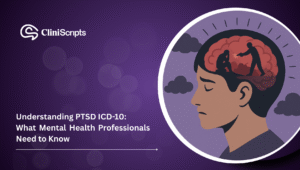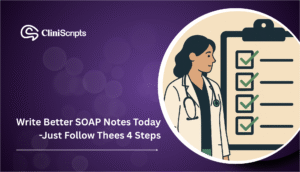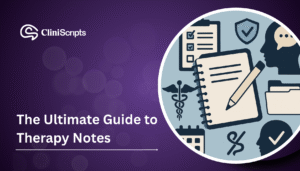Discover how AI-powered medical scribes and therapy aids are revolutionizing mental health workflows in 2025—boosting accuracy, speed, and clinician well-being.
Author: Nauman Jaffar, Founder of Markitech & CliniScrips, Mental Health Professional
Graphic Design: Hadiqa Aamir
Medical scribes and therapy aids powered by AI are transforming mental health care in 2025. What used to be a luxury is now a clinical necessity. Today’s mental health professionals are embracing AI agents—not just to take notes, but to streamline entire workflows, reduce burnout, and elevate care delivery.
Across the board, AI agents are accelerating clinical tasks, improving therapy note accuracy, and giving therapists the freedom to focus on clients instead of paperwork. From transcribing audio to text to building custom therapy aids, AI is empowering behavioral health teams in ways that were unimaginable just a few years ago.
Let’s explore the six most impactful AI agent use cases for mental health—and why adopting a medical scribe solution gives your clinic a powerful edge.
1. Agentic RAG: From Searching to Synthesizing Clinical Intelligence
Keyword: mental health transcription services, therapy notes
RAG (Retrieval-Augmented Generation) agents are no longer just search tools—they synthesize years of mental health transcription services into meaningful insights. For instance, a therapist might ask:
“What mood patterns have I documented over the last five sessions?”
— and receive a summarized answer based on their therapy notes within seconds.
These agents also streamline internal operations. From locating the clinic’s suicide risk protocol to surfacing the right CPT codes for trauma-based CBT, RAG tools become your knowledge concierge—on-demand and context-aware.
Bonus: These systems can also support medical scribes by providing fast reference to historical patient data.
2. Workflow Automation Agents: Your Invisible Admin Team
Keyword: medical scribe, note taking
Clinic managers often cite note taking, client intake, and post-session coordination as the biggest time drains. With workflow automation agents, these are handled automatically:
- Send welcome emails to new clients
- Schedule initial consultations
- Create EMR entries
- Notify your medical scribe software to prepare for live documentation
Paired with AI tools that transcribe audio to text, the entire process—from intake to documentation—becomes seamless and secure.
This seamless integration between automation and medical scribes enables real-time documentation without disrupting the therapeutic process.
3. Coding Agents: Build Therapy Aids Without a Developer
Keyword: therapy aid, medical transcription for mental health
No in-house tech team? No problem. Coding agents like Cursor allow therapists to build custom therapy aids or digitized assessments (like the PHQ-9 or trauma checklists) using natural language input.
Want to integrate medical transcription for mental health into billing? These agents can write the backend logic, sync your therapy notes, and flag missing or inconsistent ICD codes—all automatically.
The result: customized tools that extend the work of your AI medical scribe, ensuring clinical records stay accurate and compliant.
4. Tool-Based Agents: One-Click Therapy Transcription Wins
Keyword: Therapy Transcription Services, Psychological Transcription
These task-focused agents handle small but vital actions—like searching past therapy notes, locating a specific term in a session, or generating structured summaries with Therapy Transcription Services.
They’re often integrated with medical scribe tools to help teams:
- Audit clinical sessions
- Flag missing compliance data
- Automate follow-up communications
Whether you’re reviewing Psychological Transcription for supervision or clinical audits, these agents save time without compromising accuracy.
5. Computer Use Agents: Making Legacy Systems Work Smarter
Keyword: transcribe audio to text, mental health professionals
Not every EMR integrates well with APIs. For clinics still navigating insurance claims, legacy software, or older EMRs, computer use agents step in to mimic human activity and upload structured data automatically.
This is where medical scribe tools shine—agents can take the finalized output of transcribed audio to text and input it into outdated systems, eliminating manual data entry.
6. Voice Agents: From Dictation to Dialogue
Keyword: Mental health Dictation Services, medical scribe
Voice agents help clinicians speak their notes aloud—then automatically generate accurate documentation using Mental health Dictation Services.
Example: “Client reports reduced anxiety and begins journaling.”
An AI-powered medical scribe transforms this into a complete SOAP or DAP note in seconds.
These tools are also integrated with:
- Call handling
- Session pre-screenings
- Automated after-hours workflows
When paired with your medical scribe solution, voice agents elevate not just documentation, but the entire care experience.
Why Mental Health Clinics Can’t Wait
Clinics using medical scribe tools aren’t just working faster—they’re working smarter. The benefits are undeniable:
- Consistent, accurate documentation
- Lower burnout for mental health professionals
- Real-time therapy notes that support better care
From AI voice agents to note taking automation, every solution adds to a future-proofed, scalable mental health practice.
Final Thoughts: It’s Not a Matter of If—But When
Keyword: medical scribe, therapy notes, mental health professionals
By 2025, every task that can be automated—from therapy notes to appointment scheduling—will be.
Clinics that integrate AI-powered medical scribe tools will gain time, consistency, and peace of mind. Those that delay risk falling behind.
At CliniScrips, we deliver smart, HIPAA-compliant medical scribe technology built for behavioral health.
👉 See how CliniScrips works — and transform your clinical workflow, one note at a time.

